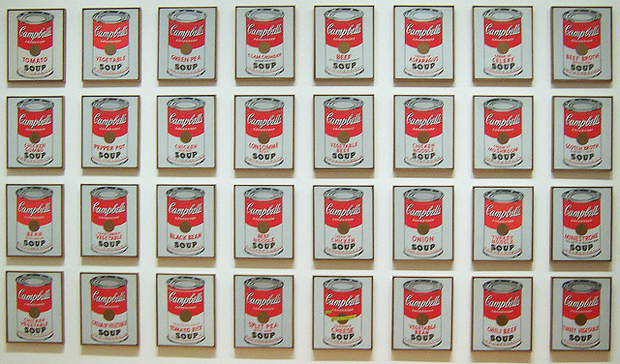Comedian Bill Hicks once begged advertisers to “kill yourself, kill yourself, kill yourself now.” To Hicks advertisers are Satan’s little helpers. Maybe he’s right. Advertising convinces people to do things that are bad for them, spend money they don’t have, and buy products that fail to satisfy. From his standpoint, advertising lies. I often agree with him.
But I’m also sceptical of any opinion presented so absolutely. Studying philosophy has taught me that all dogma is dangerous, and always questionable. So, to avoid being dogmatic, let’s question the idea that advertising is evil. What if advertising was an honest profession? How might one argue that?
In philosophy, I’ve been learning about idealism. It’s the notion that only the mind exists and that there is no external reality. This idea – despite the commonly held belief that external reality is real – has a lot going for it. It’s alternatives are dualism, that there is a soul and a reality that interact, and materialism; that there is only a physical reality. These two ideas are undermined by the arguments of many philosophers.
Rene Descartes famously said, “I think therefore I am.” What he meant was that he could not prove anything existed separately from his mind. We experience reality only through our perceptions, and perceptions alone don’t prove much. What’s to say, Descartes argued, that what I perceive as reality isn’t just a dream?
This kind of thinking can lead to nihilism, the belief that beyond appearances there is no truth. If you accept nihilism, you might also begin to value art over theory or truth. Art never assumes itself to be true. By being an illusion first and foremost, it avoids the tricky situation theory gets itself into in a world where objective truth is constantly being undermined. Is advertising a kind of art, then, that undermines popular truths about products, and instead creates its own persuasive fictions about them?
It is often said that advertising is more an art than a science. And though the modern world tends to value science and objective truth over the dalliances of artists, advertising has embraced creativity and made a lot of money out of it. It has bought into – knowingly or not – the idea that truth is a matter of perception rather than reality. And perception is alterable. Reality is what you make it.
When an advertiser approaches a product, they must look at it with fresh eyes. They do not judge it according to prevailing social views, or their own personal ones. They nihilistically erase all the currently held beliefs about a product so that they may create new ones persuasive enough to change the product without physically changing it.
The very fact that advertisers can alter our perceptions on things without changing the thing itself supports the idealistic notion of perception as reality. By going about their day-to-day business, advertising is constantly undermining the power of reason and objective truth. An advertiser might agree with Shakespeare when he wrote that, “there is nothing good or bad, but thinking makes it so”.
Take Frederick the Great, once King of Prussia, who wanted to make the potato a mainstay in the Prussian diet. People at that time thought the potato was ugly and bland, but Frederick understood this as a matter of perception, not some unchangeable potato truth. Frederick decided to make the potato a royal vegetable. It was planted in the royal garden, and the guards were given only one order: do not guard it very well. What had previously appeared a boring vegetable became an object of desire. Frederick had waved his magic wand and made an illusion appear real.
Perhaps all advertisers are, like Federick, nihilistic magicians waving their wands and making stone appear diamond. McDonalds may appear an evil multi-national corporation, but with a flick of the wand, it's a place of love and community. There as an honesty, then, embedded in the business of advertising: an honesty about the nature of truth and the power of perception. We might compare it to politics, which is also a show of appearances but rarely admits it. Politicians are constantly claiming to be honest politicians, even when their tricks are obvious.
One problem with this theory is that advertising has become very real and many consumers are not in on the joke. They buy products not just because they enjoy the illusion, but because they think the illusion is real. But many citizens, highly educated and overexposed to advertising, are increasingly aware of the tricks advertising plays.
That's where post-modern advertising comes in. This is where advertising not only puts on a show, but also reveals the show to be fake. Postmodern advertising embraces the notion that although, “there are signs that … (people) bow to the gods of advertising, there are equally indications that people find the gods ridiculous”. It pokes fun of itself in an ironic way, and by doing this tried to sell exactly the thing it is making fun of itself for selling. Double irony.
I will leave you with my favourite example of post-modern
advertising. It is, perhaps, as honest as advertising can get. By admitting that what it’s selling is an illusion, and making that illusion transparent to the viewer, it is fully exposing all it’s tricks and hoping we will buy the product anyway. And if we look a little deeper, it is urging us to wonder, as Edgar Allen Poe once did, whether life is but a dream within a dream. It’s the Diamond Shreddie, and I bet you never knew a breakfast cereal could provoke such deep musings on the meaning of life. Enjoy.
Beth Gibson



